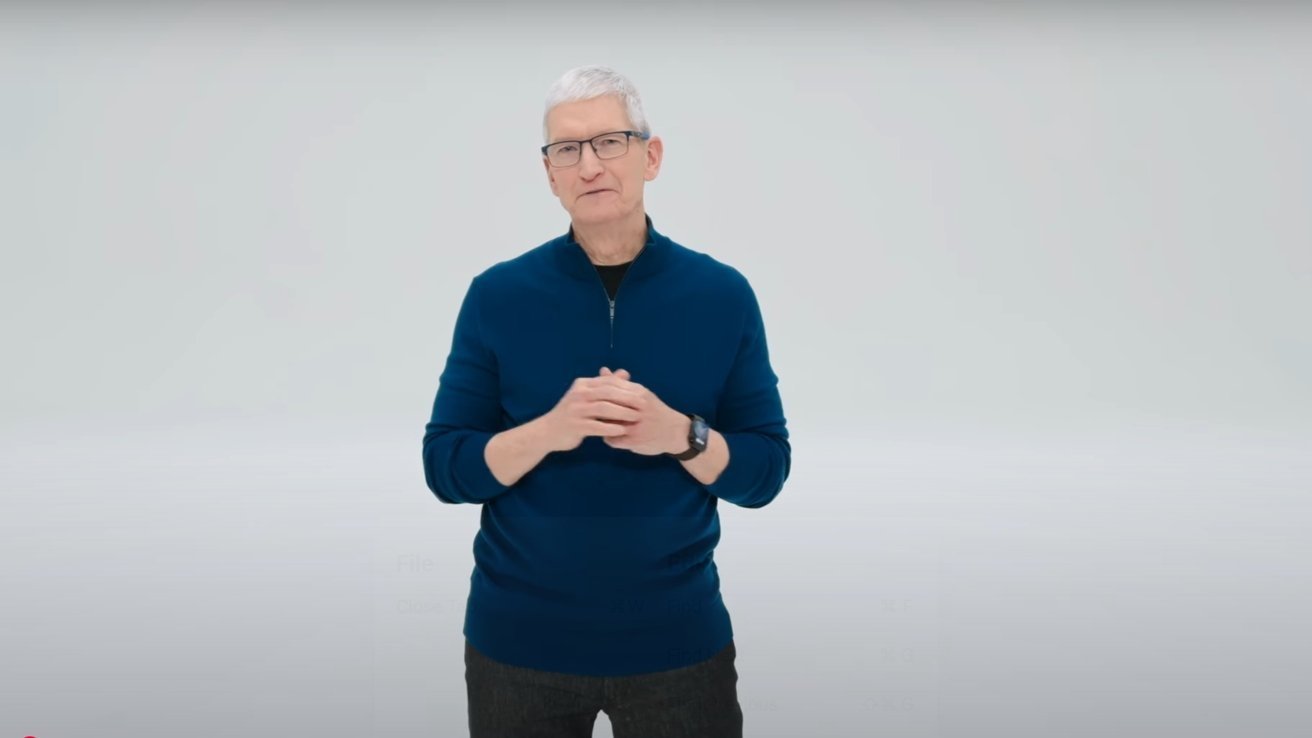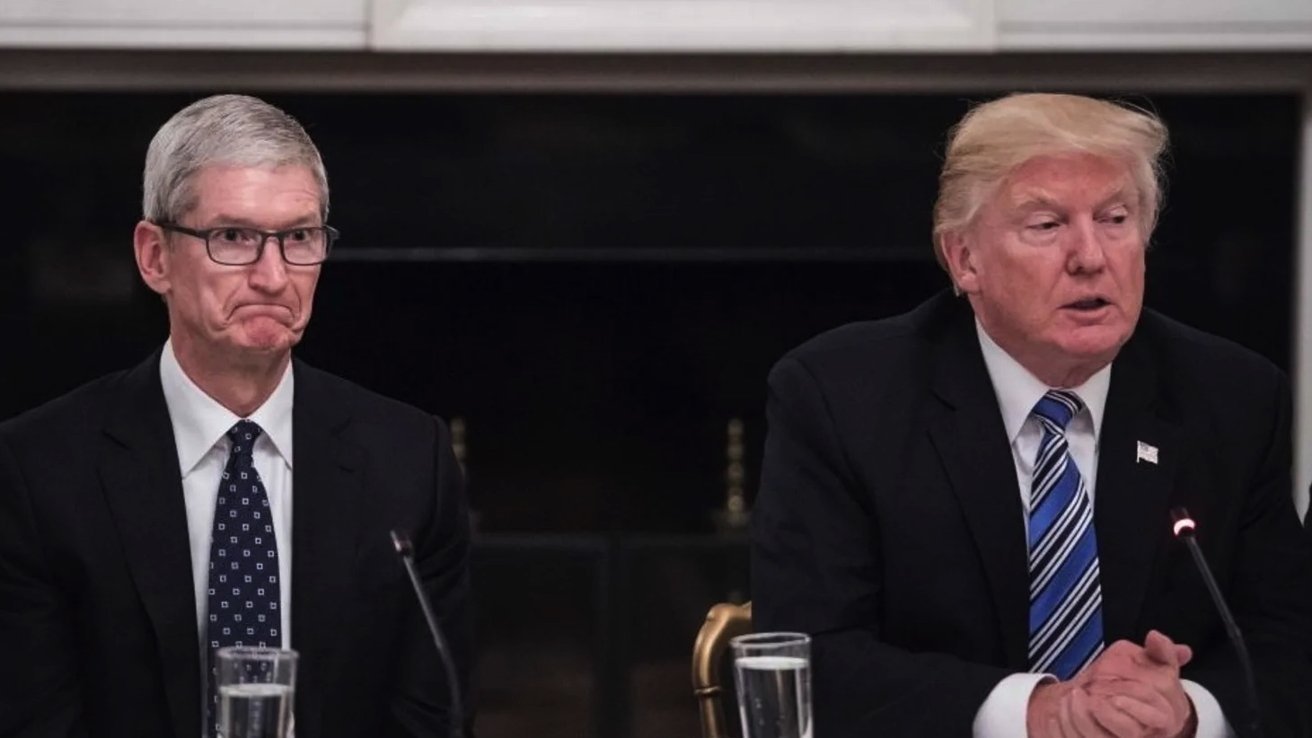Tim Cook says Apple's DEI program may change in the future, but only if required by law
During a shareholders' meeting on Tuesday, Apple CEO Tim Cook explained that the company might have to alter its DEI program policies as the US legal landscape shifts.

Apple CEO Tim Cook said the company's DEI program might see changes in the future.
On February 25, Apple held its annual shareholder meeting for 2025. Though multiple issues and proposals were discussed, a DEI-related proposal from shareholders belonging to a conservative think-tank, the so-called "National Center for Public Policy Research," garnered the most attention.
They claimed that Apple's current DEI program might pose "litigation, reputational, and financial risks" to the company. Apple understandably fought back and urged shareholders to vote against the proposal.
Owners of Apple shares overwhelmingly voted to maintain the iPhone maker's current diversity, equity, and inclusion (DEI) program along with its associated policies and hiring practices.
Mere minutes after the decision was made, however, Apple CEO Tim Cook commented on the future of the iPhone maker's DEI programs. As was reported by The BBC, Cook said that Apple's DEI program could change in the future, should there be a need to comply with changes in laws and regulations.
"As the legal landscape around this issue evolves, we may need to make some changes to comply, but our north star of dignity and respect for everyone and our work to that end will never waver," said the CEO, adding that the company would continue to work on "a culture of belonging where everyone can do their best work."
During the shareholders' meeting, Cook also pointed out that Apple's strength comes precisely from its diversity, and that there were no DEI-related hiring quotas. The CEO explained that the company's culture was one where "people with diverse backgrounds and perspectives come together," and said that the iPhone maker would remain "committed to the values that have always made us who we are."
Cook's most recent statements come as no surprise, given his previous comments on related issues. The NCPPR filed a separate proposition in 2014, when the right-wing group asked Apple to justify its environmental and accessibility practices, saying that they might negatively affect return on investment or ROI.
"When I think about making our products accessible for the people that can't see or to help a kid with autism," Cook responded, adding "I don't think about a bloody ROI."
Apple's stance on its diversity, equity, and inclusion policies has remained strong and consistent over the years. While some tech companies rushed to gain the favor of President Trump, Apple likely wouldn't follow suit unless compelled to do so.
Apple likely won't change its DEI policies unless forced
Though Cook outright said that Apple "may need to make some changes to comply," this doesn't mean that a policy change will arrive in the immediate future. If such changes were to happen, they would only be implemented to ensure compliance with law.

President Trump could theoretically force Apple and other companies into changing DEI programs.
The comments made by Apple's CEO could be seen as little more than a public statement, meant to appease those who want changes to the company's DEI program.
Many US companies, including the likes of Meta, Amazon, and Goldman Sachs, have all rolled back or outright ended their DEI programs, and they did so to gain the favor of the Trump administration. President Trump has called for the end of DEI programs in both the government and private sector, so it makes sense that some companies would opt for immediate changes.
Tim Cook, however, already has an established strategy for dealing with President Trump, and it appears as though he's been trying to appease his close ally Elon Musk, who is in charge of the so-called "Department of Government Efficiency." Though the two are obviously against DEI policies, there is currently no law that would force Apple to abandon its DEI program.
The U.S. Supreme Court ruled in SFFA V. Harvard that discriminating based on race in college admissions violates the Equal Protection Clause of the 14th Amendment. There's a belief that the ruling could impact corporate DEI programs, though no companies have yet been legally compelled to make changes.
Apple's own shareholders overwhelmingly voted to maintain the current DEI program, indicating that there is no significant desire for change on that front. The company itself previously urged shareholders to vote against proposed DEI changes, meaning that the company leadership has no intention of removing or scaling back the existing Inclusion and Diversity program, either.
While Apple's DEI program could see changes in the future, particularly during the next four years under the Trump administration, there are no indications that this will happen anytime soon. At the time of writing, there are currently no laws which would require private companies to eliminate their DEI programs.
Read on AppleInsider



Comments
Why not think of the “bloody ROI” and just say these initiatives have opened Apple’s eyes to investments with solid returns.
Race/gender/sexual preference have nothing to do with being able to do the job effectively.
now what? Apple cannot cave on this, if they do they might as well make the Tangerine Traitor a co-CEO.
Unfortunately, it's the people who rage against DEI while disingenuously singing the praises of meritocracy who really want to ensure there isn't a meritocracy, by forcing a return to practices that exclude minorities, women and others, and actively shutting down opportunities for those people from HR and hiring all the way back through school to prenatal care. The cognitive dissonance of it all is the current cadre of grossly unqualified podcasters and TV personalities tapped to lead the entire US government prattling on about "meritocracy" while scraping out every policy and program designed to ensure there actually is one.
So here we are with Tim Cook praising his company's DEI programs that have been ratified by shareholders, while cautioning that any changes to come will be the result of orders from those same unqualified leaders, and not from any change in Apple's intent to seek out, encourage and create the widest possible field of qualified applicants to work at the company.
Now if only Apple Maps hadn't caved on "Gulf of America" or at least had said "Gulf of America (Gulf of Mexico)".
People who are staunchly opposed to DEI should at least ask themselves why they view it in such a negative light. A common refrain I hear all of the time is that everyone should be viewed as individuals and all selection processes should be based solely on merit. That would be great if building and obtaining merit was done on a level playing field and was an equal opportunity for everyone. Before meritocracy was a touted as a way to level the playing field, merit was largely achieved through social standing, wealth, influence, legacy, social and professional connections, ... and did I say money? Yeah, money.
So along comes meritocracy as the new standard and savior for the things DEI aimed to achieve. Now, only the best and brightest get a key to unlock the door to future success. But what happened next was that the same group of people who were privileged by the previous standard, in other words The Elite Class, figured out how to tune the meritocracy based system in their favor. I went to a public school that was at times little more than a herding pen. The Elites sent their kids to private schools, prep schools, and made sure their kids checked the box on every extracurricular activity that could possibly elevate their merit score. Some of my colleagues spent more money per year sending their kids to private middle and high schools than they would have spent sending them to MIT. I am not exaggerating.
Basically, we ended up back where we started, with the Elites running the show behind a facade of meritocracy and democracy. But the true selection process, e.g., wealth, social standing, and influence, just to name a few, are still the determining factor for who gets sent further up the line and who gets shunted into the scrap pile. So from that perspective, meritocracy didn't really achieve what it set out to do, at least on a large scale and on the ground. There are obviously some victories and exceptions to be had, but on a large scale meritocracy and DEI didn't change the landscape much at all in terms of equal opportunity. If it isn't working shouldn't fixing it be still be in play rather than simply killing it?
It seems like Apple is trying to make it work for them. In fact, some of the organizations that succumbed to the pressure to kill their DEI initiatives have started to look more closely at underrepresented candidates based on economics, social status, and availability or resources that shaped their comparative eligibility ... and they're seeing similar outcomes to what they were getting with DEI in place. I'm sure all hell will break loose when they find out that someone who doesn't come close to sharing their financial standing and status is being given an opportunity to elevate themselves in society.
I believe that those who want to kill DEI are really saying that they want to go back to the way things were before, which would save them a heck of a lot of time and money they've been spending on preparing their offspring to extend their Elite legacy into the future. Devaluing intellectuals, scientists, experts, medical researchers, consumer protections, constitutional precedents, international harmony, unions, etc., and anything that is attainable outside of the Elite class and their trust fund privilege needs to be done as quickly as possible. Adios meritocracy, the new sheriff in town is called loyalty, not loyalty to America or its founding principles, but loyalty to the leader, who is not the king in name only.
They do want to make America great again, but only for themselves, based on privileges afforded only to the Elites. but not for you. As long as they can keep grooming a large portion of the voting public to believe that they are somehow going to get something positive out of putting the old world order Elites back in charge, they will be calling the shots for a long time to come. At some point they may not need a voting public at all, you know, just like it is now with Russia and its owner, Putin. The transition from Representative Democracy to Bourgeois Democracy will be complete before we get $2.00 /gal gasoline and egg prices under $6.00 a dozen.
But the butthurts have it in their heads DEI means lowering the qualifications for talent. It does not. And then there are some in the majority ho see any inclusion as an assault on their entrenched power.
I guess it takes all kinds.